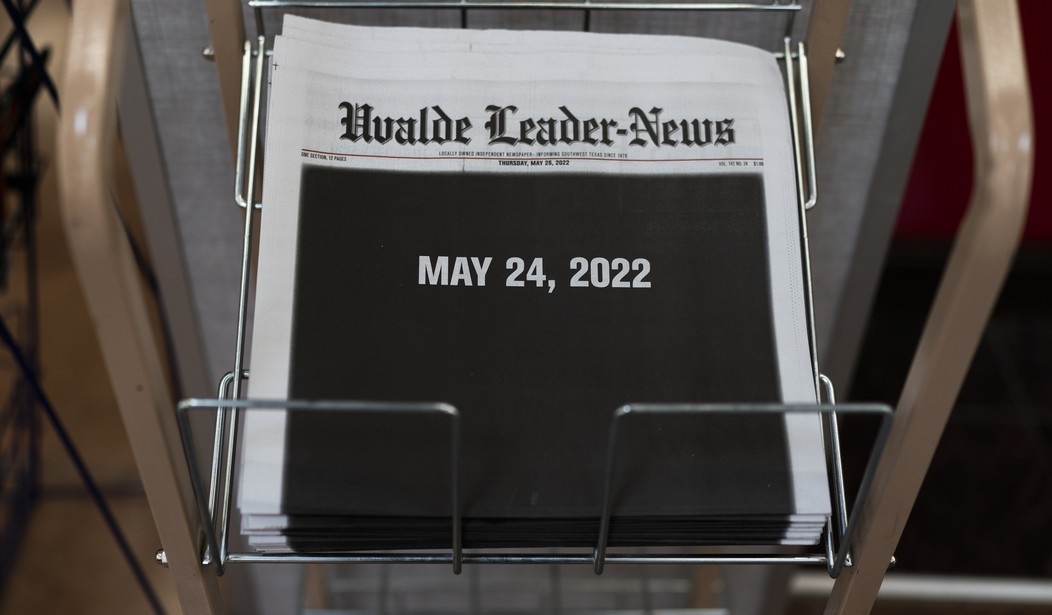Six years ago, the nation witnessed one of the worst mass shootings to date at Marjory Stoneman Douglas High School in Parkland, Florida. Seventeen people died in the carnage. Last week, construction crews arrived and began tearing down the building where the shooting took place. This has raised some uncomfortable questions for the survivors and the public at large which the Associated Press is exploring this week. There was nothing structurally wrong with the building making it any less safe than the rest of the structures on the campus. It's being torn down solely for emotional purposes. Is that the right thing to do? Will it really make anyone feel any better?
Last week in Parkland, Florida, wrecking equipment began demolishing the building at Marjory Stoneman Douglas High School where a gunman’s rampage in 2018 ended with 17 people dead. As the rumble of destruction echoed, people in the community set to explaining exactly why ripping the building down was so meaningful — and so crucial...
Parkland. Uvalde. Columbine. Sandy Hook. A supermarket in Buffalo. A church in South Carolina. A synagogue in Pittsburgh. A nightclub in Orlando, Florida. When violence comes to a public place, as it does all too often in our era, a delicate question lingers in the quiet afterward: What should be done with the buildings where blood was shed, where lives were upended, where loved ones were lost forever?
Which is the appropriate choice — the defiance of keeping them standing, or the deep comfort that can come with wiping them off the map? Is it best to keep pain right in front of us, or at a distance?
For many of the people who were at the school when the shooting took place, tearing the building down seems to have been the right choice. A former student told the AP that "it's time to bring an end to this very hurtful chapter." One of the teachers there called the building "a monument to mass murder" and described the deconstruction as "a monumental event." But does this process truly "bring an end" to anything? The shooting was a terrible tragedy, something I'm sure everyone can agree on. But the memories will still remain even after the building is gone. The victims will be just as dead and those they left behind will still miss them, though such mournful memories thankfully tend to fade over time.
Other locations where mass shootings took place have taken similar actions, but not all of them. The Tree of Life synagogue in Pittsburgh was the scene of a mass shooting in 2018. The synagogue was torn down and replaced with a new sanctuary and a memorial. That was their choice and the work was performed using private funds, but won't that memorial serve to keep those terrible memories alive all the same?
Other communities that have gone through these horror shows seem to have moved on as best they can with the local residents trying to get on with their lives. The Tops Market in Buffalo was closed for a time after the mass shooting there by a deranged racist in 2022. But after the building was cleaned up, they reopened and are back in business today. Columbine High School was the scene of one of the more infamous mass shootings in the United States but the school still stands and holds classes today.
While not ignoring the pain and emotional scars of the survivors, there are some cold, hard truths about these decisions that are impossible to ignore. First and foremost, tearing down and replacing fully functional buildings is an expensive business. Tops Market is owned and operated by a private business corporation. They would need to justify that sort of expense to their shareholders and apparently they were unable to do so. When it comes to public schools, many school districts simply don't have the money in their budgets for these types of construction projects. Even if they do, they are spending taxpayer money so the public should at least have the opportunity to weigh in on the decision. As already noted, if a private institution such as a synagogue wants to do this and they can come up with the money, that's their choice. But that money could have gone to other charitable purposes instead.
I'm not saying it's an easy decision for any community to make. I've been fortunate enough to never have lived anyplace where a mass shooting took place, so perhaps I would feel differently if I were approaching the question with that sort of direct experience. But it still seems like an extremely expensive and complicated "gesture" to make in the name of healing emotional scars. And nothing washes away memories entirely.









Join the conversation as a VIP Member